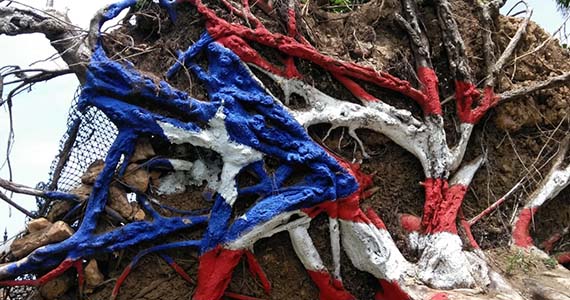Hurricane Maria - What Did it Mean for Philadelphia?

Summary
Many Puerto Rican evacuees have migrated to the United States mainland after facing displacement and hardship associated with natural disasters. The relocation patterns resulting from Hurricanes Maria and Irma in September 2017 and the continual earthquakes since January 2020 have caused many Puerto Ricans to migrate to the U.S. Northeast and South, with Philadelphia as a migration hub. This study aimed to investigate Philadelphia’s overall response to the needs of Puerto Rican evacuees following the hurricanes. As disaster-related migration continues, evaluating Philadelphia’s approach to reaching and serving this population could be a model for other cities.
Research Methods
Semi-structured, venue-based key informant interviews were conducted among grassroots, nonprofit, city, and health care organizations in Philadelphia and regional branches of national agencies. An interview guide was created focusing on organizations’ protocols for serving these evacuees and respondents’ perceptions of challenges, successes, and further needs. Organizations were identified through a search of media coverage on evacuee responses and engagement in the Latino community, and participants also recommended others to be interviewed. Sixteen representatives of 15 organizations were recruited and interviewed. Qualitative data analysis was conducted to identify emergent themes.
Research Results
Please read the report to learn more about the emergency and long-term services Philadelphia organizations provided to Puerto Rican evacuees, successful inter-agency and cross-sector collaborations, and infrastructure challenges.
Next Steps
Evacuees continue to face numerous difficulties, especially related to housing and employment insecurity. Other needs at the forefront of Philadelphia’s long-term recovery approach include a need for evacuees to be oriented to, or provide assistance in, navigating city systems, language resources, and access to mental and medical health care. Organizations recommended continued collaboration across sectors, including partnership with the Latino community, to establish protocol and responsibilities, and ultimately, change Puerto Rico’s colonial status in the case of another imminent disaster. As disaster-related migration affects cities across the United States, evaluating Philadelphia’s approach in reaching and serving this population could be a model for others. Further research on the experience of other sectors in serving this population, such as for-profits and other healthcare organizations (particularly in mental health services), should be considered. As other locations with high evacuee influx rates conduct similar research, we hope to compare our findings. This research can be used to improve relevant organizations’ coordination of services, programs, funding, and infrastructure for this marginalized and traumatized population.
Acknowledgements
Research Team
Partners
Philadelphia Prevention Partnership
Funding was provided by the Drexel Urban Health Collaborative 2018 Depth Experience Scholarship.